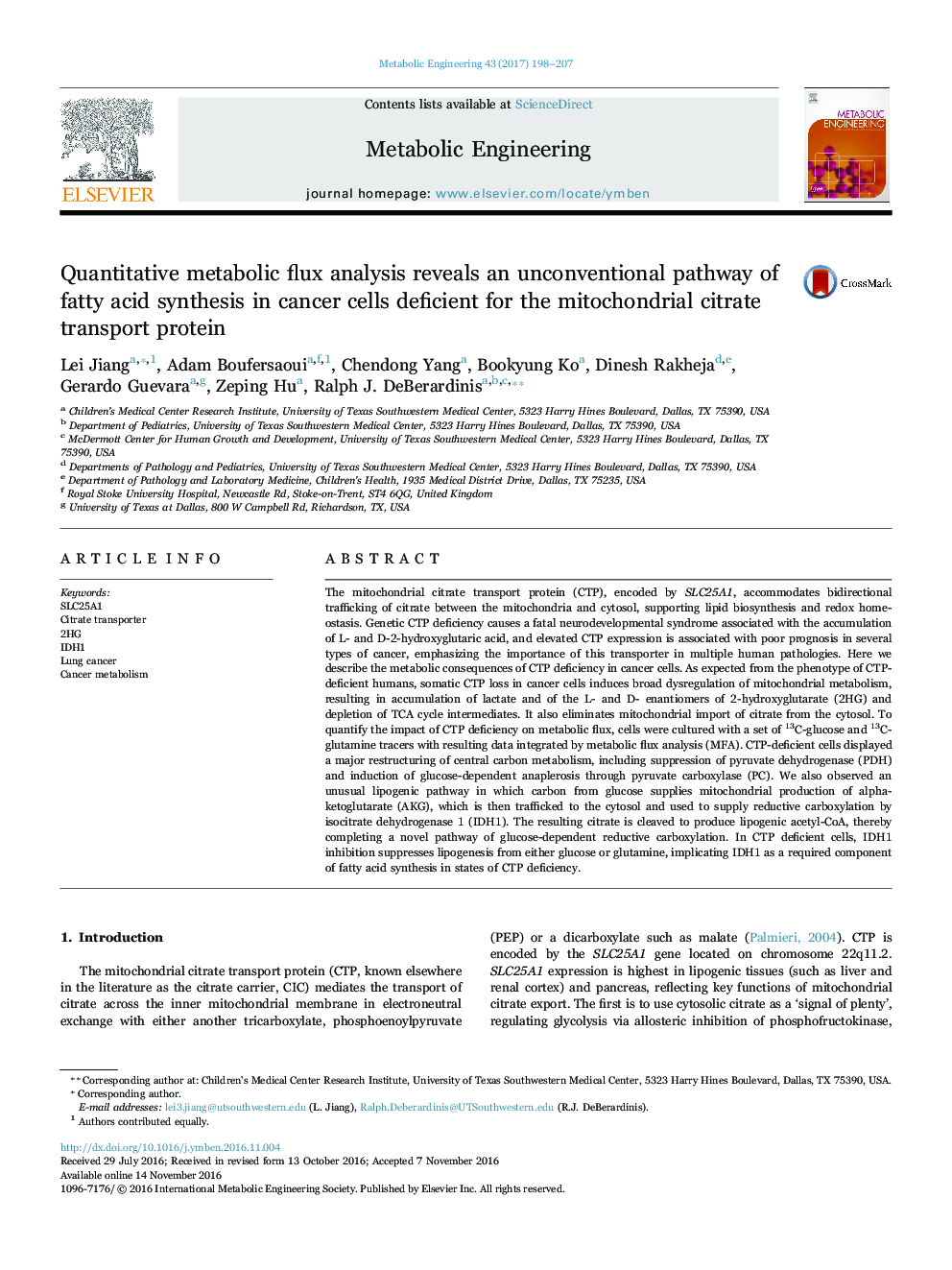| کد مقاله | کد نشریه | سال انتشار | مقاله انگلیسی | نسخه تمام متن |
|---|---|---|---|---|
| 6452665 | 1361476 | 2017 | 10 صفحه PDF | دانلود رایگان |
- CTP deficient (CTP-KO) cells have suppressed PDH and TCA cycle activity.
- CTP-KO cells have increased glucose-dependent anaplerosis.
- CTP-KO cells use cytosolic reductive carboxylation for lipogenesis.
The mitochondrial citrate transport protein (CTP), encoded by SLC25A1, accommodates bidirectional trafficking of citrate between the mitochondria and cytosol, supporting lipid biosynthesis and redox homeostasis. Genetic CTP deficiency causes a fatal neurodevelopmental syndrome associated with the accumulation of L- and D-2-hydroxyglutaric acid, and elevated CTP expression is associated with poor prognosis in several types of cancer, emphasizing the importance of this transporter in multiple human pathologies. Here we describe the metabolic consequences of CTP deficiency in cancer cells. As expected from the phenotype of CTP-deficient humans, somatic CTP loss in cancer cells induces broad dysregulation of mitochondrial metabolism, resulting in accumulation of lactate and of the L- and D- enantiomers of 2-hydroxyglutarate (2HG) and depletion of TCA cycle intermediates. It also eliminates mitochondrial import of citrate from the cytosol. To quantify the impact of CTP deficiency on metabolic flux, cells were cultured with a set of 13C-glucose and 13C-glutamine tracers with resulting data integrated by metabolic flux analysis (MFA). CTP-deficient cells displayed a major restructuring of central carbon metabolism, including suppression of pyruvate dehydrogenase (PDH) and induction of glucose-dependent anaplerosis through pyruvate carboxylase (PC). We also observed an unusual lipogenic pathway in which carbon from glucose supplies mitochondrial production of alpha-ketoglutarate (AKG), which is then trafficked to the cytosol and used to supply reductive carboxylation by isocitrate dehydrogenase 1 (IDH1). The resulting citrate is cleaved to produce lipogenic acetyl-CoA, thereby completing a novel pathway of glucose-dependent reductive carboxylation. In CTP deficient cells, IDH1 inhibition suppresses lipogenesis from either glucose or glutamine, implicating IDH1 as a required component of fatty acid synthesis in states of CTP deficiency.
204
Journal: Metabolic Engineering - Volume 43, Part B, September 2017, Pages 198-207
